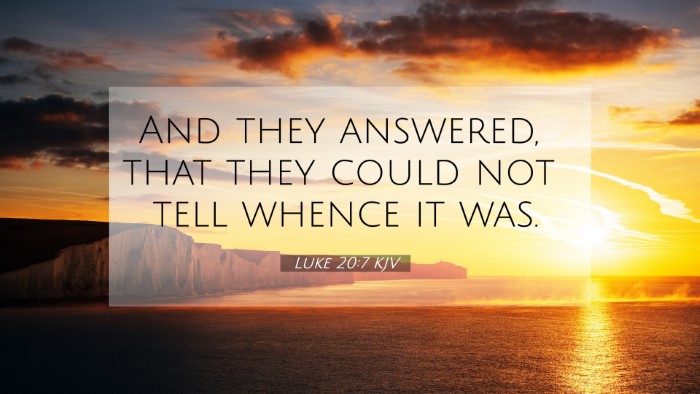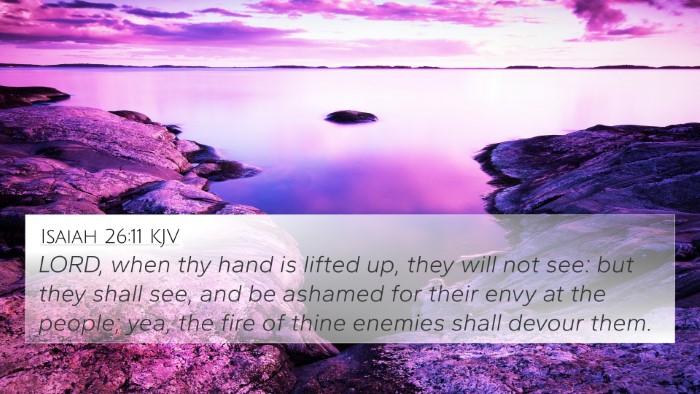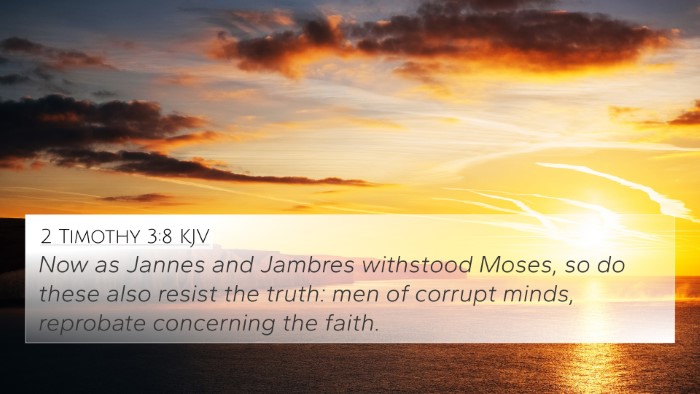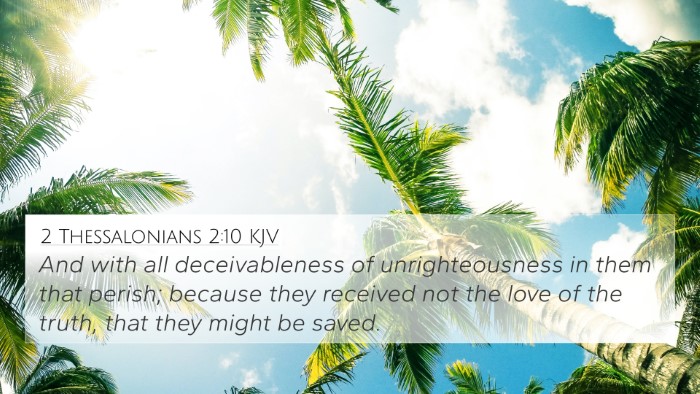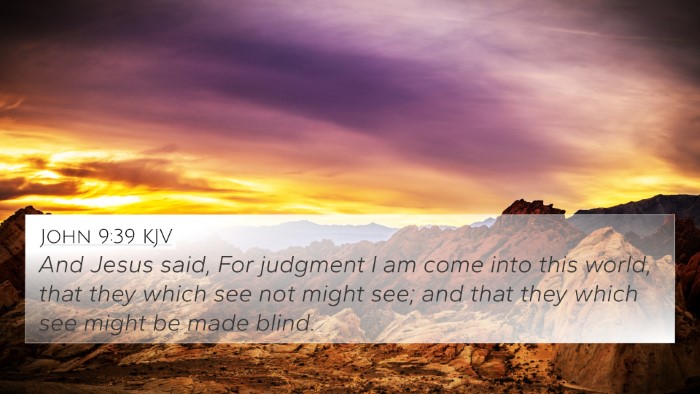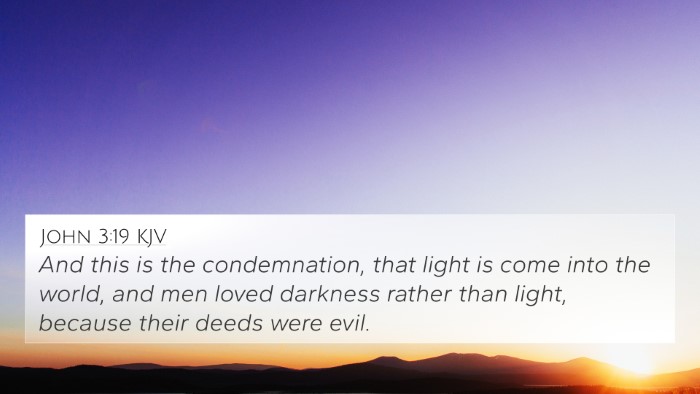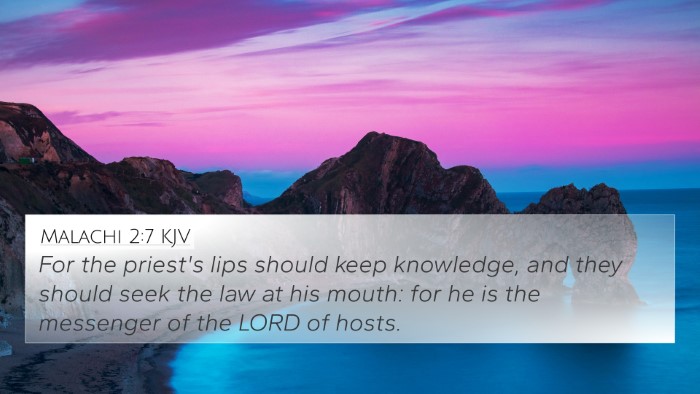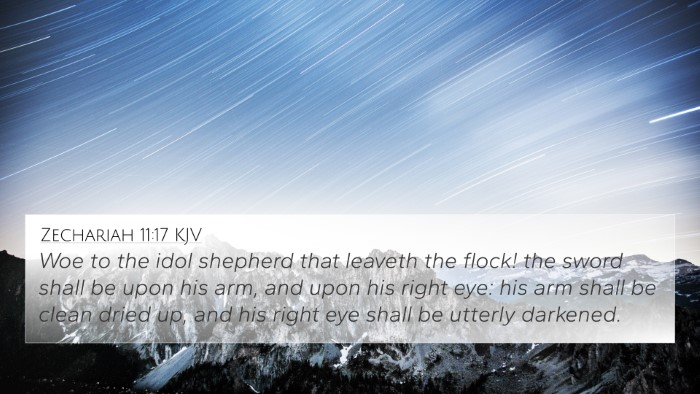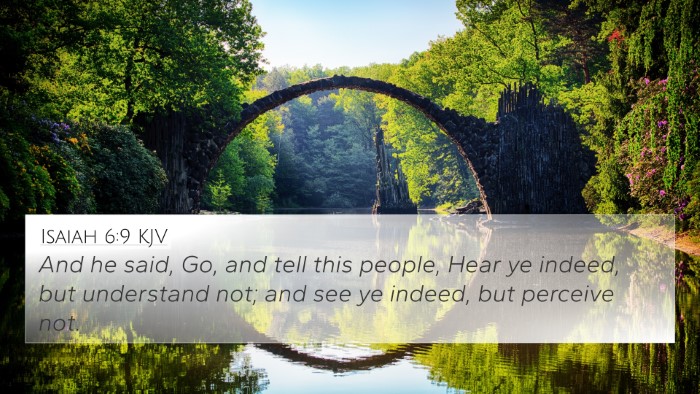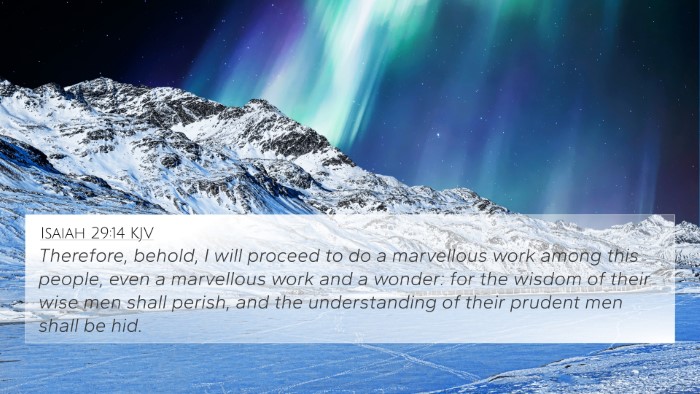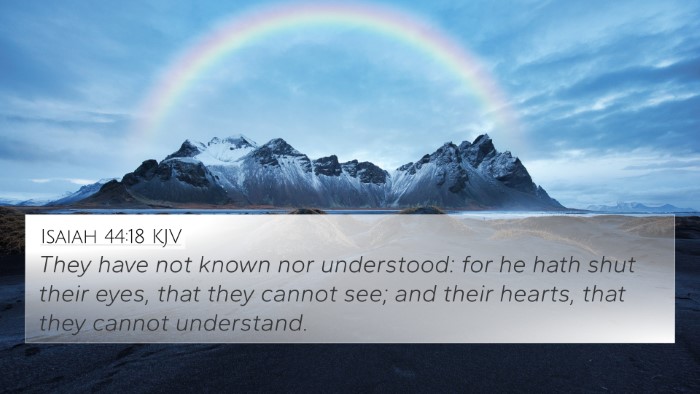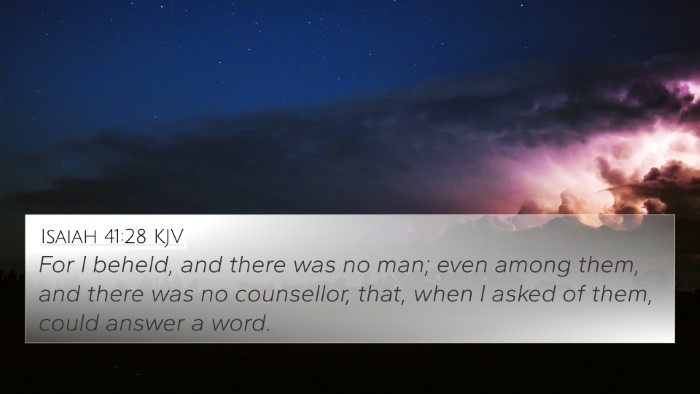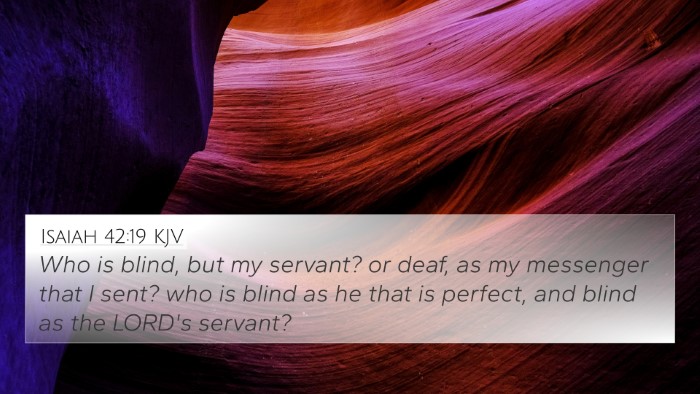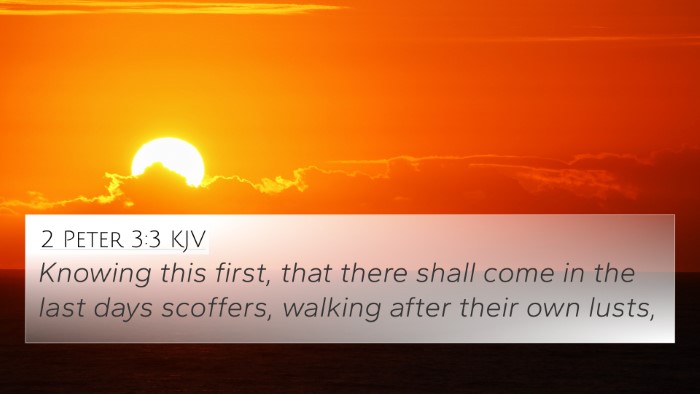Understanding Luke 20:7
Luke 20:7 is a significant verse within the Gospel of Luke, where the religious leaders respond to Jesus' questions regarding the authority by which He teaches. The verse states:
"And they answered, that they could not tell whence it was." This simple, yet profound response highlights the tension between Jesus and the religious authorities of His time.
Summary of Commentaries
Insights from several public domain commentaries including those by Matthew Henry, Albert Barnes, and Adam Clarke provide a nuanced understanding of this verse.
-
Matthew Henry's Commentary:
Henry emphasizes the reluctance of the religious leaders to acknowledge Jesus’ divine authority. Their inability to respond decisively indicates not only their fear of the people but also their spiritual blindness.
-
Albert Barnes' Notes:
Barnes points out that the leaders' evasive answers reflect their lack of genuine insight into Jesus’ identity and mission. They avoided a definitive answer due to the implications it would carry regarding their own authority.
-
Adam Clarke's Commentary:
Clarke elaborates on the political and spiritual implications of their failure to provide an answer. He remarks on the irony that these leaders, who should have known the truth about the Messiah, instead found themselves confounded by His presence.
Thematic Connections
The reluctance of the religious authorities to answer Jesus is a common theme in scripture, illustrating broader issues of authority, recognition of truth, and the resistance of established powers to divine revelation. The following are notable cross-references to consider:
- Matthew 21:25: This verse parallels the authority question, where Jesus challenges the priests in similar fashion.
- John 12:42-43: These verses highlight the fear of religious leaders to acknowledge Jesus due to their desire for praise from men rather than God.
- Isaiah 29:13: This Old Testament reference speaks to the lip service of worship while their hearts are far from God, linking to the spiritual condition of the leaders.
- Mark 11:30: Again, Jesus poses a similar question regarding John the Baptist's authority, showing a continuous theme of questioning from the Pharisees and scribes.
- Luke 19:47-48: These verses reflect the plotting of the chief priests against Jesus, highlighting their desperate attempts to maintain control over their authority.
- John 5:39-40: Jesus rebukes the Jewish leaders for their failure to see Him in the Scriptures they study, pointing to the blindness discussed in Luke 20:7.
- Acts 4:13: The boldness of Peter and John in preaching post-resurrection is set against the backdrop of the earlier leaders' fear, creating a contrast in understanding authority.
Connections Between Bible Verses
Luke 20:7 serves as a pivotal moment in the growing conflict between Jesus and the religious establishment. By avoiding the question of Jesus’ authority, the leaders reveal their own ethical and theological inadequacies.
This illustrates a broader tension present throughout the New Testament, particularly in the Gospels where divine authority confronts human tradition.
How to Use Bible Cross-References
To deepen one’s understanding of Luke 20:7, it is beneficial to utilize a bible concordance or a bible cross-reference guide. These tools can aid in exploring related themes and scripture, allowing for a comprehensive study of connecting Biblical texts.
Detailed Cross-Reference Analysis
Engaging in a comparative study of the Gospels aids in identifying the unique perspectives each writer offers on Jesus’ authority and the reactions from the leadership.
For example, while Matthew emphasizes Jesus' fulfillment of prophecy, John focuses on the intimate relationship between the Father and the Son—both lead to the same conclusion that the leaders’ ignorance is unfathomable given their knowledge of Scripture.
Inter-Biblical Dialogue
The themes present in Luke 20:7 resonate not just in the immediate context of the Gospels but also have roots in the prophetic literature of the Old Testament and the epistles of the New Testament.
The constant call for recognition of God’s authority and the challenge it poses to human authority creates a rich tapestry of inter-Biblical dialogue.
Conclusion
Ultimately, Luke 20:7 embodies a critical moment of tension where spiritual leaders' refusal to recognize truth not only leads to their own condemnation but also sets the stage for Jesus’ ultimate sacrifice.
Engaging in scriptural cross-referencing deepens our understanding of the intricate connections between Biblical texts, themes, and the overarching narrative of redemption.


